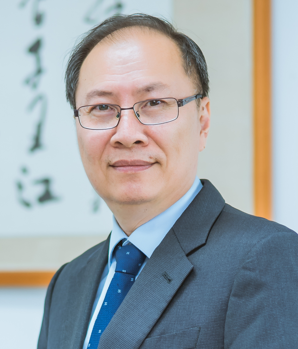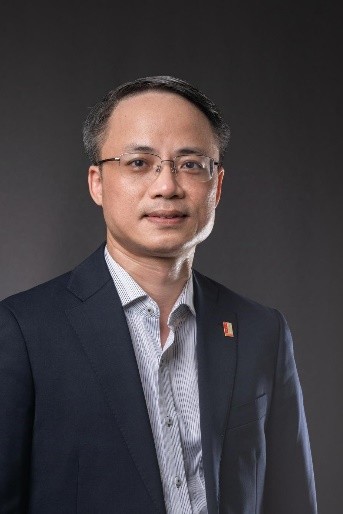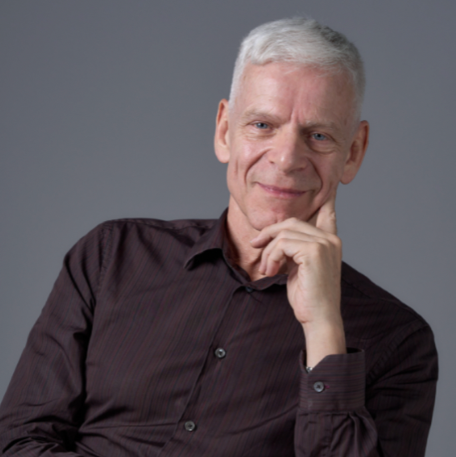
Prof. Chan Siew Hwa
Nanyang Technological University, Singapore
Cheng Tsang Man Chair Professor in Energy
Former President Chair in Energy
Fellow, Academy of Engineering Singapore
Professor Chan leads hydrogen and fuel cell research at the Energy Research Institute @ NTU (ERI@N), Nanyang Technological University, and serves as Senior Vice President of the China-Singapore International Joint Research Institute in Guangzhou Knowledge City. He obtained his PhD from Imperial College London and is the Cheng Tsang Man Chair Professor in Energy at NTU’s School of MAE, as well as a Fellow of the Academy of Engineering, Singapore. His research has earned him major recognitions, including the George Stephenson Medal (IMechE, 2000), the Outstanding Scientific Achievement Award (IAHE, 2007), inclusion among the “World’s Most Influential Scientific Minds” (Thomson Reuters, 2014), the Nanyang Awards for Research Excellence (2014) and Innovation & Entrepreneurship (2017), Guangzhou’s “Star of Innovation Talent” (2018), the President’s Chair in Energy (2018-2023), and Singapore’s National Day Awards (2017, 2018). He has published over 380 refereed papers, amassing more than 32,000 citations and an h-index of 88. Recently recognized by ScholarGPS as a Highly Ranked Scholar (Lifetime) in Fuel Cell, Hydrogen Energy, and Mechanical Engineering - placing him among the top 0.05% of scholars worldwide - Prof. Chan has been a passionate advocate of the hydrogen economy for more than 30 years. He organized and chaired the 1st World Hydrogen Technologies Convention (WHTC) in Singapore in 2005 and will serve as conference chair of the 25th World Hydrogen Energy Conference (www.whec2026.org) in Singapore, June 23–26, 2026.
Title: Direct Ammonia Solid Oxide Fuel Cells
Abstract: Hydrogen has gained global attention as a clean energy carrier, yet its storage and transport remain challenging due to its low volumetric energy density, even in liquid form. Ammonia, with higher volumetric energy density and established infrastructure, has emerged as a potential “Hydrogen 2.0” fuel for large-scale applications such as marine propulsion. Solid oxide fuel cells (SOFCs) present a promising pathway for direct conversion of ammonia into electricity with high efficiency and low emissions. Two distinct approaches have been explored: indirect ammonia SOFCs, in which waste heat from the SOFC is harnessed to drive an external ammonia cracker, producing a hydrogen–nitrogen fuel mixture; and direct ammonia SOFCs, where ammonia is fed directly to the anode without prior cracking. While the indirect route benefits from efficient thermal integration, the required heat exchanger and cracker significantly increase system bulk and complexity, posing challenges for mobile applications. In contrast, direct ammonia SOFCs offer a more compact system architecture but face critical issues such as anode nitridation and the generation of nitrogen oxides (NOx), which carry environmental concerns. This talk will present preliminary results on direct ammonia SOFC development and highlight key scientific and engineering challenges that must be overcome to enable ammonia’s role as a practical carbon-free fuel.

Prof. Gary W. Chang
National Chung Cheng University, Taiwan
IEEE Fellow
Gary W. Chang obtained his Ph.D. from the University of Texas at Austin in 1994. He was with Siemens Power Transmission & Distribution, LLC, Minnesota, USA, from 1995 to 1998, working on EMS/SCADA product developments for electric utilities worldwide. He joined the Department of Electrical Engineering at National Chung Cheng University, Taiwan, in August 1998 and became a Chair Professor in 2020. He served as Chair of the IEEE PES Power Quality Subcommittee (2016–2017) and the IEEE PES Transmission and Distribution Committee (2019–2020).Presently, Prof. Chang serves as a Senior Editor of IEEE Transactions on Power Delivery and as an Associate Editor of IEEE Power Engineering Letters. He has also served as a guest editor for several other IEEE and non-IEEE journals. Additionally, he is the President of the Taiwan Smart Grid Industry Association (2021–2025) and the Executive Director of the Taiwan Power & Energy Engineering Association (2017–present).Prof. Chang’s research interests include power system harmonics, power quality, renewable energy, and microgrid control. He is an IEEE Fellow (elevated in 2010) and a registered Professional Engineer in the State of Minnesota, USA.
Title: Power Quality Challenges in Grids with High Penetration of Inverter-Based Resources
Abstract: The rapid global transition toward renewable energy has led to unprecedented levels of inverter-based resources (IBRs) such as photovoltaic generation, wind power, and battery energy storage in modern power grids. While these technologies enhance sustainability and system flexibility, their proliferation also introduces significant power quality (PQ) challenges. Not like traditional synchronous generators, IBRs exhibit limited short-circuit capacity, fast dynamic behavior, and strong dependence on control algorithms, which fundamentally alter grid performance. High penetration of IBRs is associated with increased harmonics, interharmonics, and voltage fluctuations. Moreover, solid-state transformation further accelerates the shift toward highly power-electronic grids, compounding PQ concerns. These developments challenge existing standards and conventional mitigation strategies. This presentation provides a comprehensive overview of PQ issues arising from high IBR penetration, highlighting case studies from renewables integration. The talk concludes with perspectives on future research, regulatory needs, and the role of PQ management in ensuring reliable, resilient, and sustainable grids.

Prof. Nguyễn Đức Huy,
Hanoi University of Science and Technology (HUST), Vietnam
Vice-Dean of the School of Electrical and Electronics Engineering
Nguyễn Đức Huy, is an Associate Professor and Vice-Dean of the School of Electrical and Electronics Engineering at Hanoi University of Science and Technology (HUST). His research primarily focuses on optimizing power systems and integrating renewable energy sources, with particular emphasis on addressing grid stability challenges associated with high penetration levels of solar and wind energy. He specializes in developing computational models and control algorithms to enhance system reliability and efficiency.
As Principal Investigator, he has successfully led projects including "Optimal Power System Operation with Renewable Energy Sources and Reliability Analysis" (Ministry of Education and Training, 2022–2023). Additionally, he co-directed "Review of Technology Trends in Power System Operation with High Renewable Penetration" (Vietnam Electricity Corporation, 2022–2024), contributing to strategic initiatives for national grid modernization.
Dr. Huy’s research contributions are documented in several publications in respected journals, including IEEE Transactions on Power Systems, Applied Sciences, and Energy Reports. Notable areas of his work include transient stability-constrained optimal power flow and stochastic optimization models for hybrid AC/DC microgrids.
An experienced trainer in power system dynamics, Dr. Huy frequently provides industrial training sessions for Vietnam Electricity (EVN) on topics such as grid stability analysis, renewable energy integration, and adaptive protection systems.
Title:Impact of Renewable Energy Integration on Grid Stability: Lessons from Major System Incidents
Abstract: The rapid integration of inverter-based renewable resources (IBRs)—primarily solar and wind—has transformed power system dynamics, introducing novel challenges to grid stability and reliability. This keynote synthesizes common and critical findings from recent major blackout incidents, including the latest April 2025 Iberian grid collapse, to highlight the systemic vulnerabilities that emerge in high-renewable penetration scenarios. The primary challenge is not renewable energy itself, but the loss of system inertia and the mismatch between IBR control characteristics and traditional grid protection schemes. The decline of grid inertia significantly impacts the frequency stability, which might trigger cascading disconnections of IBRs that amplify the initial fault far beyond the N-1 contingency standard. The April 2025 Iberian event demonstrated how 12.5 GW of renewable capacity—approximately 37% of the system load—disconnected within three seconds, overwhelming load-shedding schemes and fragmenting the grid. Addressing these vulnerabilities requires a multi-faceted approach. First, grid codes should be enforced, mandating the provision of stability services, such as Virtual Synchronous Generator functions (VSG). Second, grid codes must be updated with coordinated wide-area protection schemes that integrate frequency stability controls across the system. Third, operational flexibility must be enhanced, requiring distributed energy resources (DERs), battery energy storage systems (BESS), and other communication mechanisms to provide essential reliability services in real-time. Last but not least, rigorous validation of IBR models must be required before commercial operation, ensuring consistency between simulation studies and actual plant performance under fault conditions. The transition to renewable-dominant grids is achievable but demands fundamental redesign of system architecture, protection philosophy, and operational frameworks—not incremental adjustments to legacy standards.

Prof. Laurent El Ghaoui,
VinUniversity, Vietnam
Laurent El Ghaoui obtained his PhD at Stanford University in 1990, and held appointments at the Ecole National Superieure de Techniques Avancees (ENSTA, now part of Institut Polytechnique de Paris) and University de Paris La Sorbonne. In 1999, he joined the EECS department at UC Berkeley, where he became full professor, with appointments in IEOR and the Haas Business School. An expert in optimization and machine learning, he co-authored several books (including “Financial data Science” with Cambridge University Press) and more than a hundred of publications, with more than 70,000 citations on Google Scholar. In 2022, he joined VinUniversity in Vietnam, as Vice-Provost of Research and Innovation and Dean of Engineering and Computer Sciences. Laurent is also a co-founder of Kayrros SAS, which develops environmental intelligence solutions.
Title: Integrated AI for the environment and sustainable development
Abstract: In this talk I will review some of the projects developed at the Center of Environmental Intelligence at VinUniversity, focused on two areas: monitoring the environment, and solutions for sustainable cities. Both areas offer great opportunities for Vietnam to develop innovative technologies that are integrate into a single system many modern building blocks, such as AI optimization algorithms, battery energy systems and renewables.

Prof. Yiming Zhang,
Fuzhou University, China
Vice-Dean of the School of Electrical Engineering and Automation
He is a national-level talent (First Batch of National Excellent Young Scientists Fund (Overseas)), a Minjiang Scholar Distinguished Professor of Fujian Province, Professor and Ph.D. Supervisor at Fuzhou University, Vice Dean, and Deputy Director of the Fujian Provincial Key Laboratory of New Energy Power Generation and Power Conversion. He is a Senior Member of IEEE and a High-Level Talent of Fujian Province (Overseas Category B). He has been listed among Elsevier’s World’s Top 2% Scientists.
His main research interests include wireless power transfer technologies and power electronic power conversion technologies, among others. He has published one English monograph with Springer as the sole author. In recent years, he has published over 100 papers in leading domestic and international journals and conferences, holds 8 invention patents, including 67 first-/corresponding-author SCI papers and 51 first-/corresponding-author EI papers, with 4,703 total citations and an h-index of 39. He has authored 8 ESI Highly Cited Papers and 1 ESI Hot Paper.
He has received multiple Best Paper Awards at prestigious international and domestic conferences, including ECCE, EVS, EVCP, and CIEEC. He has served as the Principal Investigator of several research projects, including the National Excellent Young Scientists Fund (Overseas) and Young Scientists Fund of the National Natural Science Foundation of China, the Fujian Provincial Outstanding Young Scientists Fund, the Fuzhou Municipal Science and Technology Bureau International Cooperation Project, Ministry of Education Industry–University Collaborative Education Projects, as well as various university–industry cooperative projects.